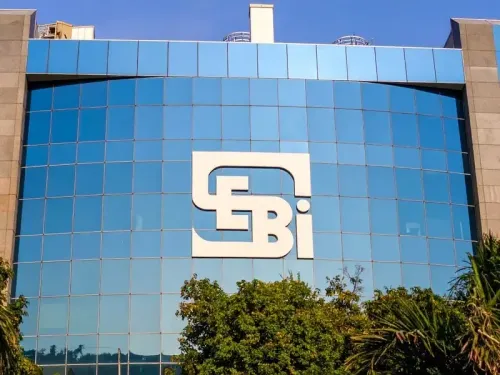The Crucial Role of Sustainable Startups in Achieving Global Net-Zero Objectives

Synopsis
Key Takeaways
- Sustainable startups prioritize environmental stewardship.
- Corporate sustainability is now a business imperative.
- Innovations in renewable energy and circular economy are crucial.
- Investment in sustainable startups is on the rise.
- Consumer preferences increasingly favor eco-friendly products.
In a world grappling with the climate change crisis and resource depletion, a new wave of businesses is stepping up to the plate. These startups are not merely focused on profits — they are fueled by a deep commitment to sustainability, pioneering innovations that offer solutions designed to safeguard the environment while fostering economic growth.
Whether by enhancing renewable energy capabilities, revolutionizing waste management through circular economy principles, or inventing groundbreaking green technologies, these enterprises are redefining success in today's unpredictable landscape.
Notably, business sustainability encompasses practices that cater to current needs without compromising the ability of future generations to meet theirs. The pressing environmental challenges we face require startups to act as drivers of sustainable innovation.
Startups exhibit both adaptability and a willingness to innovate, positioning themselves as leaders in crafting transformative solutions for environmental issues. Key sectors where sustainable startups make significant impacts include renewable energy, the circular economy, and green technology.
New ventures within these sectors are dedicated to creating solutions that minimize resource consumption while mitigating environmental harm. Sustainable startups are charting a forward path for business, demonstrating that operational success can harmonize with respect for nature and society, thereby cultivating a fair and sustainable global economy.
The Emergence of Sustainable Startups
Corporate sustainability has become a vital business imperative as consumers, regulators, and investors increasingly prioritize environmental stewardship. A variety of compelling reasons drive systemic shifts towards eco-friendly startups. Heightened awareness of environmental issues has led consumers to pursue products and services that lessen ecological footprints.
Today, individuals possess a better understanding of their environmental impact and are inclined to support businesses that align with their sustainability values. Government initiatives are increasingly backing sustainable practices through policies that incentivize companies to reduce emissions and waste. These environmental regulations set a foundation for a sustainable future while ensuring a level playing field for businesses committed to eco-friendliness.
The growing investor interest in ESG (Environmental, Social, and Governance) factors propels the growth of sustainable startups. Business practices that lead to long-term sustainability and potential profitability attract market investments.
The marketplace has welcomed startups like Tesla and Beyond Meat, which have made significant strides in revolutionizing the electric vehicle and plant-based food sectors. Companies such as BluSmart Mobility are making a considerable impact by significantly reducing carbon emissions in urban transportation as India's first exclusive electric ride-hailing service. These organizations illustrate the potential of sustainable innovation to cultivate profitable business models that drive the market toward environmental sustainability.
In 2024, the Indian startup ecosystem continued to embrace sustainability with considerable investments and advancements. The government allocated Rs 35,000 crore through the Strategic Startups Fund to promote sectors such as electric vehicles and green energy solutions.
Innovations Driving Sustainable Startups
Startups dedicated to sustainability are at the forefront of innovation, making significant advancements across various market segments. Companies in the renewable energy and clean technology sectors are pioneering new technological breakthroughs in solar and wind energy while enhancing battery storage techniques. Through their initiatives, these businesses not only improve energy efficiency but also provide eco-friendly energy solutions, which are essential in combating climate change.
For instance, BluSmart Mobility, an electric ride-hailing service, is working to lower carbon emissions in urban transport. At the same time, Saatvik Solar is scaling up its solar cell production with plans for a 2 GW facility, and Varaha promotes regenerative farming practices that help sequester CO₂.
The circular economy and waste reduction are gaining traction thanks to startups like Loop and Plastic Bank. These companies turn ordinary waste into valuable resources, adopting circular economic principles. Their approach combines material reuse with advanced recycling technologies, leading to environmentally beneficial solutions and business growth.
A sustainable transformation is also unfolding in the fashion and consumer goods sectors. Brands like Allbirds and Pangaia are setting industry benchmarks through ethical sourcing and manufacturing products from biodegradable materials. These companies aim to meet customer demands for sustainable options, resulting in new industry standards.
Startup firms in the agri-tech and food sustainability domains are utilizing advanced technologies to revolutionize food production. Corporate players like Apeel Sciences and Plenty are employing cutting-edge farming techniques, including vertical farming systems and AI-driven agricultural automation, to enhance food safety and sustainability. These innovations optimize resource utilization while minimizing the environmental impact of traditional agriculture, paving the way for sustainable development.
Challenges of High Investment and Operational Complexity
Implementing and developing eco-friendly practices necessitates substantial funding, posing a significant hurdle for sustainable startups. New businesses aiming for innovation within the fashion industry may encounter considerable challenges due to these initial costs. One of the most formidable obstacles faced by sustainable startups is the complexity of scaling their operations, as they require intricate supply chain systems that exceed conventional industry standards.
Sustainable operations grow increasingly complicated, leading to additional expenses during both operational and logistical phases. Sustainable startups often find themselves competing against established non-sustainable companies with greater resources and market influence, which can hinder new entrants from successfully breaking into the market. However, sustainable startups also have numerous opportunities. Governments provide critical funding and supportive measures for green initiatives, enhancing both financial backing and innovation. A rising number of consumers prefer to purchase products that deliver both environmental and social benefits, as they recognize the full implications of their buying choices.
The shift in consumer preferences toward sustainable purchasing creates multiple opportunities for startups to capture new market segments. Modern technological advancements are lowering the costs associated with sustainable solutions, making them more accessible to startups through more efficient implementations. Sustainable startups are poised to lead the industry's transition toward sustainability as they capitalize on valuable market opportunities.
Globally, sustainable startups play a vital role in reshaping business operations by developing innovative solutions to existing environmental challenges. Innovative business leaders are leveraging advanced technologies to create eco-friendly, intelligent, and efficient systems within renewable energy and waste reduction sectors. The rapid growth of sustainable technology underscores the urgent need for robust investments in sustainable entrepreneurship.
To meet global net-zero targets, ongoing investment and innovation are essential, as these efforts form the backbone of sustainable advancement. Support for sustainable products and investments in purposeful initiatives, alongside supportive legislative frameworks, come from consumers, investors, and policymakers alike.
Through collaborative efforts, these stakeholders can strengthen the green startup movement, ensuring that sustainability seamlessly integrates with economic growth and human welfare.
(The author is a co-founder of InterNet, an initiative aimed at enhancing the school internship system. He is a gold medalist in the Future Tech Olympiad and has received numerous prestigious awards and recognitions.)










